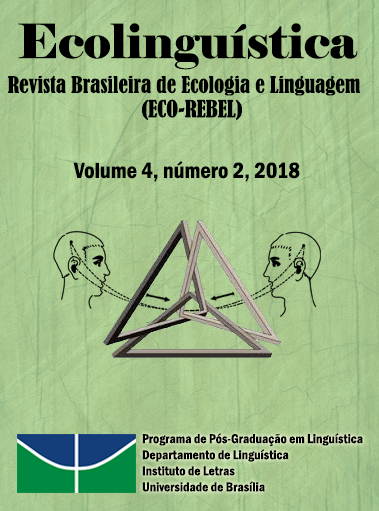Alwin Frank Fill
Resumen
Alwin Frank Fill is Professor Emeritus of English at Graz University (Austria). He studied English and Latin at the University of Innsbruck and undertook further studies at Queen's College (University of Oxford, UK) and at the University of Michigan (Ann Arbor, USA). His main research interests are ecolinguistics, language and suspense, the impact of language and linguistics for kids. He has published books on all these topics, most recently The language impact: evolution, system, discourse (2010) and Kinder- und Jugendlinguistik (2014). His books on ecolinguistics include The ecolinguistics reader (ed. with P. Mühlhäusler, 2001) and Sustaining language: Essays in Applied Ecolinguistics (ed. with Hermine Penz, 2007). Einar Haugen is justly considered the "father" of ecolinguistics, but he who kicked off its spread all over the world was Alwin Fill. In regard to Brazilian Ecolinguistics, he sent some Introductory Words to be read at the I EBE (1st Brazilian Meeting on Ecolinguistics, University of Brasília, 2012), which were published with a selection of teh papers presented in Cadernos de linguagem e sociedade v. 13, n. 1, 2013, available in paper and at http://periodicos.unb.br/index.php/les/issue/view/833
Descargas
Descargas
Publicado
Cómo citar
Número
Sección
Licencia
Autores que publicam nesta revista concordam com os seguintes termos:
Autores mantêm os direitos autorais e concedem à revista o direito de primeira publicação, sendo o trabalho simultaneamente licenciado sob a Creative Commons Attribution License o que permite o compartilhamento do trabalho com reconhecimento da autoria do trabalho e publicação inicial nesta revista.
Autores têm autorização para assumir contratos adicionais separadamente, para distribuição não exclusiva da versão do trabalho publicada nesta revista (ex.: publicar em repositório institucional ou como capítulo de livro), com reconhecimento de autoria e publicação inicial nesta revista.
Autores têm permissão e são estimulados a publicar e distribuir seu trabalho online (ex.: em repositórios institucionais ou na sua página pessoal) a qualquer ponto antes ou durante o processo editorial, já que isso pode gerar alterações produtivas, bem como aumentar o impacto e a citação do trabalho publicado (Veja O Efeito do Acesso Livre).



3.png)



